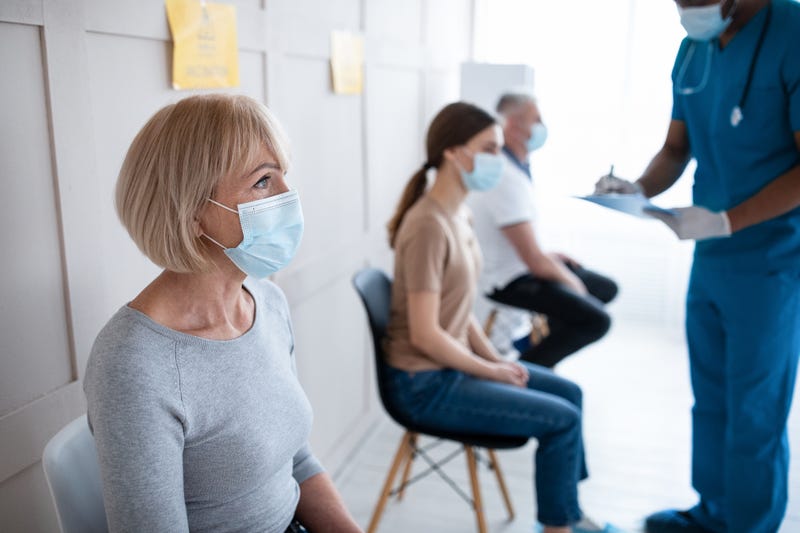
This week, the U.S. Food and Drug Administration announced that another round of COVID-19 booster shots manufactured by both Pfizer BioNTech and Moderna would be available for people over 50 years old and people with certain immunocompromised conditions.
As cases of COVID-19 are on a downward trend nationwide, according to the Centers for Disease Control and Prevention, some may question whether they really need another booster. Indeed, there are some reasons why everyone over 50 should not rush out for another shot.
“If you’re in an area where [cases are] really low and you get the booster now, and two-to-three months from now the rate goes up higher, I don’t know if you're going to have the same protection than if you wait a couple of months,” Dr. Richard Besser, CEO of the Robert Wood Johnson Foundation and former acting director of the CDC, told Today. “So that’s why I would say pay attention to what’s going on locally.”
Local transmission rates by county can be found through a CDC tool. As of Thursday afternoon, Cook County, Ill., was one of the areas with a low transmission rate, whereas Pulaski County, Ky., has a medium transmission rate, according to the tool.
According to CNBC, rates have gone up in Europe and China due the “more contagious” omicron BA.2 variant of the SARS CoV-2 virus. From March 20 to March 26, this variant accounted for close to 55% of cases in the U.S.
For most people in the U.S., the CDC and FDA recommend an initial two-dose round of COVID-19 vaccine, followed by a booster shot. For immunocompromised individuals, the initial recommended series incudes three doses rather than two.
Boosters approved this week would be the fourth shot for most and the fifth for some. People who received the single-dose Johnson & Johnson shot may be on a different schedule. All adults who received an initial Johnson & Johnson vaccine and then a booster at least four months ago are now able to receive a second booster dose with a mRNA vaccines made by Pfizer or Moderna.
Besser said older adults – especially those with underlying conditions like diabetes or heart disease – could consider getting their additional booster right away.
In Israel an additional booster dose has already been available to individuals age 60 and older. A study released March 24 said a “substantial reduction in Covid-19 mortality by the second-booster in eligible subjects,” was found there.
“For healthy 50-year-olds, that probably isn't as important if they've gotten three shots because three shots is really the sweet spot,” said Dr. Peter Chin-Hong, a professor of infectious diseases at the University of California, San Francisco, according to NBC News. “You give a one-two punch and then you wait a little bit, and then you give a booster to remind the system.”
However, Chin-Hong said he plans to make sure his 80 year old mother her additional booster.
President Joe Biden, 79, got his additional shot Wednesday while addressing the nation about the current state of the pandemic. However, Vice President Kamala Harris, 57, has not publicly announced yet if she has received the additional booster shot. White House officials have said that more funding would be needed in order to provide additional booster shots to the entire country.
“This cannot be a blanket recommendation to everyone, but rather nuanced guidance that's tailored to each person's individual medical circumstance,” said CNN Medical Analyst Dr. Leana Wen, an emergency physician and professor of health policy and management at the George Washington University Milken Institute School of Public Health.


